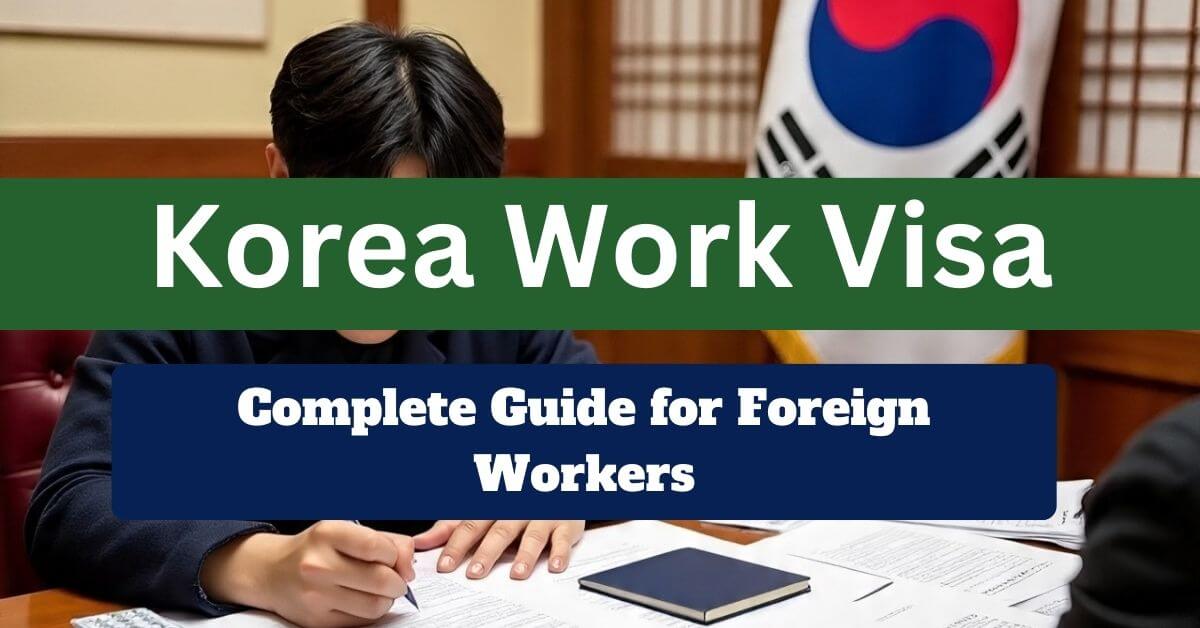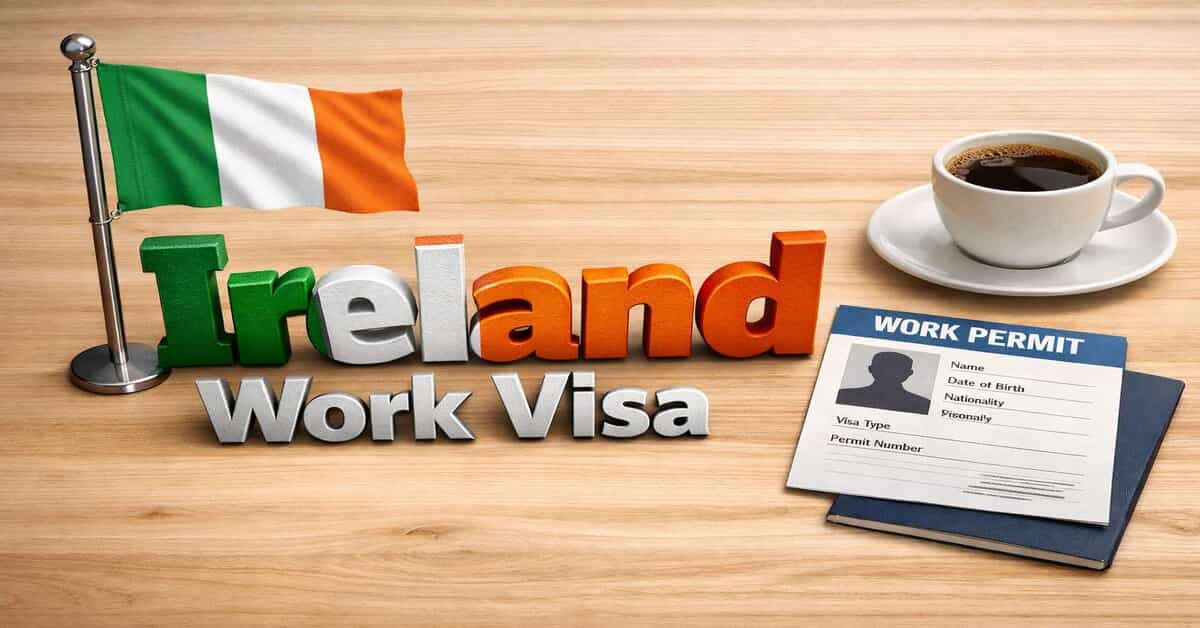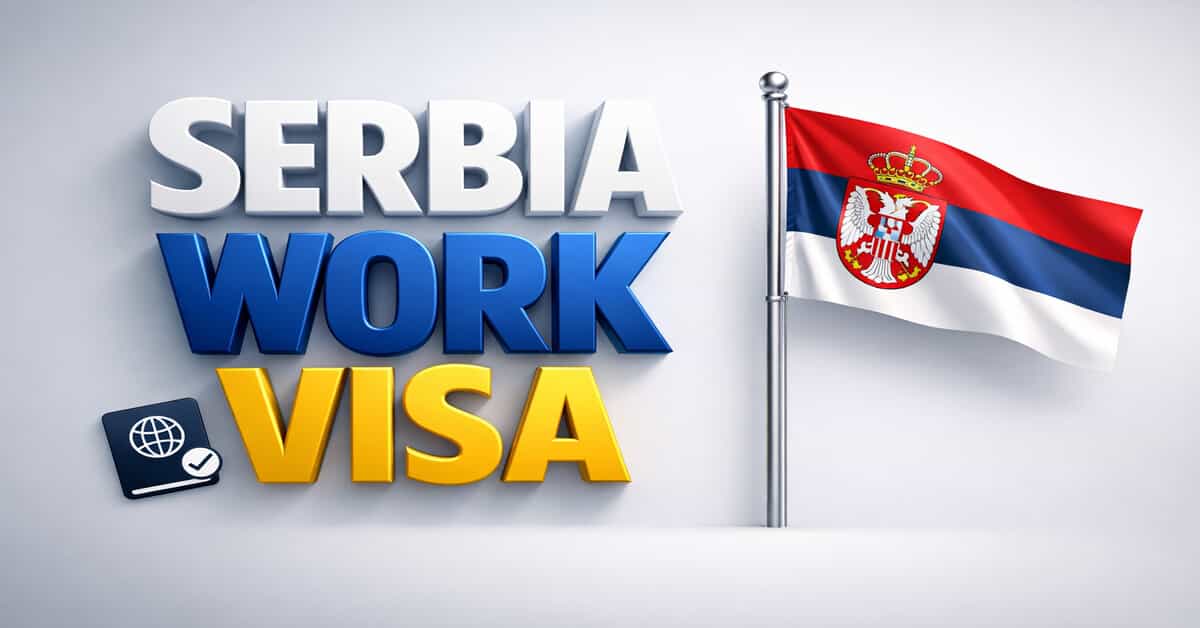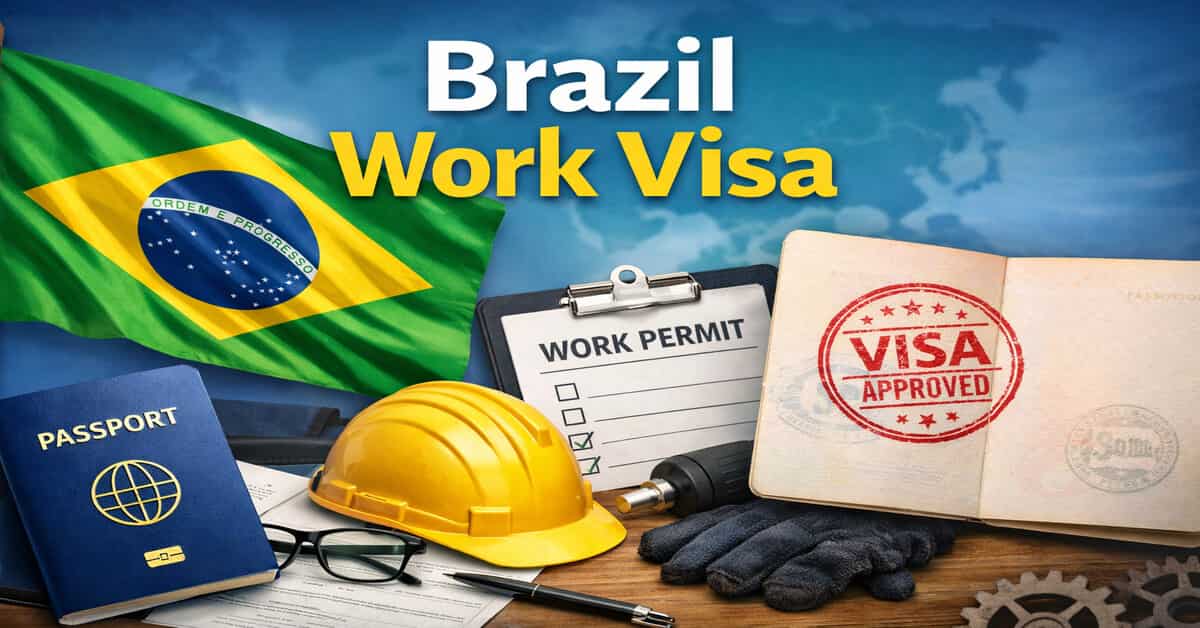Are you stuck in a job that barely covers your expenses? Tired of low wages, limited career growth, or unstable work conditions in your home country? This is the reality for thousands of workers across South Asia, where opportunities are scarce and salaries often fall short of meeting family needs. Many skilled and hardworking people from Pakistan, India, Nepal, and Bangladesh dream of a chance to earn better, build a career, and give their families a more secure future, but they don’t know where to start.
The good news? South Korea is opening its doors wider than ever before in 2026. With one of Asia’s strongest economies, higher wages, excellent worker rights, and a structured migration system, the Korea Work Visa (commonly known as the E-9 visa) is a life-changing opportunity. If you want to work legally in Korea, enjoy stable income, and even build a path toward permanent residency, this guide will show you step by step how to make it happen.
Overview of the Korea Work Visa
The Korea Work Visa (E-9) is designed for foreign workers who want to legally live and work in South Korea. Unlike short-term or tourist visas, this visa allows you to take up employment in industries facing labor shortages like manufacturing, construction, shipyards, agriculture, IT, and healthcare.
Key highlights:
- You can legally live and work in Korea.
- The visa is valid for 4 years and 10 months.
- Employers provide contracts, accommodation (in many cases), and healthcare.
- After completing your work term, you may even apply for renewal or transition to other visa categories.
In short: it’s the gateway for foreign workers to build careers in South Korea.
Benefits of a Korea Work Visa
Why do thousands of workers apply for Korea’s E-9 visa every year? The benefits speak for themselves:
Legal job & stay: No fear of deportation or working illegally.
- Family benefits: After securing your status, you can apply to bring your family on a dependent visa (F-3).
- High salaries: Monthly wages range from ₩2,000,000 to ₩3,000,000 (approx. PKR 420,000–630,000).
- Career growth: Demand for workers in IT, healthcare, and construction is rising.
- Permanent residency option: After years of work, you may apply for PR and eventually citizenship.
- Worker protections: South Korea has strict labor laws that guarantee wages, overtime pay, and safe working conditions.
Simply, the Korea Work Visa is not just a job ticket; it’s a long-term investment in your career and family’s future.
Eligibility Criteria for Korea Work Visa (2026)
Before applying, make sure you qualify:
- Age limit: 18–40 years
- Health: Must pass a medical check-up and not be color blind
- Passport validity: At least 6 months remaining
- No criminal record
- Language skills: Must pass the EPS-TOPIK exam (Test of Proficiency in Korean)
- Skills & training: Prior experience or relevant skills are highly valued
- Insurance & housing proof: Must show arrangements before moving
If you’re between 18 and 25 and can pass the EPS-TOPIK test quickly, you’ll often have an edge since Korean employers prefer younger workers for labor-intensive jobs.
Required Documents for Korea Work Visa
To make your application smooth, prepare these documents in advance:
- Valid passport (6+ months)
- Completed visa application form
- 2–4 passport-sized photos (white background)
- Employment contract or offer letter from Korea
- EPS-TOPIK certificate
- Educational or training certificates
- Proof health insurance
- Police clearance certificate
- Housing/Accommodation details in Korea
Create a document checklist in Excel or a notebook and tick items off as you collect them. Missing even one paper can delay your visa by weeks.
Step-by-Step Korea Work Visa Application Process
Applying for a Korea Work Visa is not complicated but it does require following steps carefully.
Step 1: Pre-registration
Apply online via the OEC Pakistan (Overseas Employment Corporation) website. Pay the registration fee using the challan form through HBL bank.
Step 2: EPS-TOPIK Exam
Take the EPS-TOPIK test (reading & listening) organized by OEC in coordination with HRD Korea. Results are valid for 2 years.
Step 3: Job Matching
Your profile is entered into the EPS pool. Employers in Korea select workers based on skills, scores, and availability.
Step 4: Contract Signing
If selected, you’ll receive a standard labor contract outlining wages, working hours, and accommodation.
Step 5: Preliminary Training
- Mandatory training (45+ hours) covering:
- Korean culture & language
- Industrial safety
- Worker rights & contract basics
Step 6: Visa Application & Interview
Submit all documents to the Korean Embassy in your country. Some applicants may be asked for an interview.
Step 7: CCVI & Entry into Korea
Once approved, you’ll get the Certificate of Confirmation of Visa Issuance (CCVI). Book your ticket and prepare for employment entry.
Step 8: Alien Registration Card (ARC)
Within 90 days of arrival, apply for an ARC your official Korean ID card.
Processing Time for Korea Work Visa
- EPS test & job matching: 1–3 months
- Embassy visa processing: 4–8 weeks
- Total processing time: 3–5 months
Patience is key. If you’re well-prepared with documents and test scores, your process will be much faster.
Korea Work Visa Fees & Costs (2026)
Here’s the cost breakdown:
| Fee Type | Amount (₩) | Approx. PKR |
|---|---|---|
| Visa Application | ₩80,000 | PKR 16,000 |
| EPS-TOPIK Test | ₩24,000 | PKR 5,000 |
| ARC Registration | ₩30,000 | PKR 6,000 |
| Health Insurance & Other | ₩150,000–₩300,000 | PKR 30,000–60,000 |
Total Estimated Cost: ₩300,000–₩450,000 (PKR 60,000–90,000)
Salary and Job Opportunities in Korea (2026)
Here’s a look at salaries by industry:
| Job Category | Average Monthly Salary (₩) | Approx. PKR (2026) |
|---|---|---|
| Factory Workers | ₩2,000,000 – ₩2,500,000 | PKR 420,000 – 520,000 |
| Construction Workers | ₩2,300,000 – ₩3,000,000 | PKR 480,000 – 630,000 |
| Agriculture & Farming | ₩1,800,000 – ₩2,200,000 | PKR 370,000 – 460,000 |
| Skilled Technicians/IT | ₩3,000,000+ | PKR 630,000+ |
The minimum wage in 2026 is ₩9,860/hour. Overtime pay is mandatory, so your real income can be much higher.
South Korea Visa Types (Comparison)
| Visa Type | Purpose | Duration | Notes |
|---|---|---|---|
| E-9 Work Visa | Jobs in industries like factories, construction, agriculture | 4 yrs 10 mos | For foreign workers through OEC |
| D-2 Study Visa | Higher education in Korea | Length of degree | Students must show financial proof |
| C-3 Short-Term | Business, tourism, family visits (<90 days) | Up to 90 days | Multiple entry possible |
| F-6-1 Marriage Visa | Spouse of Korean nationals | Renewable | Leads to PR eligibility |
| F-3 Dependent Family Visa | Family members of work/study visa holders | Tied to main visa |
How to Apply for a Korea Work Visa from Pakistan (2026)
For Pakistani workers, the process is slightly different:
- Apply via OEC Pakistan portal (oec.gov.pk).
- Pay registration fee through challan form at HBL bank.
- Take EPS-TOPIK exam.
- Enter the job matching pool.
- Wait for employer selection.
- Receive contract → Visa application → Embassy submission.
Official Resources for Korea Work Visa
OEC Pakistan
EPS Korea Portal
Korean Immigration
Korean Embassy websites
(country-specific)
Final Thoughts on Working in Korea
Getting a Korea Work Visa in 2026 is more than paperwork; it’s the start of a new chapter. With the right preparation, passing EPS-TOPIK, and staying committed, you can unlock high-paying jobs, career growth, and even a pathway to permanent residency.
Think of it as more than just “going abroad for work.” It’s an opportunity to secure your family’s future, gain international experience, and enjoy the benefits of living in one of Asia’s most advanced countries.
Frequently Asked Questions (FAQs)
What is the Korea work visa fee in 2026?
Around ₩80,000 (PKR 16,000).
Can I change jobs on a Korea work visa?
Yes, but you must follow OEC & HRD Korea guidelines.
How long is the Korea work visa valid?
It will take 4 years 10 months.
Can I bring my family on a Korea work visa?
Yes, with an F-3 dependent visa.
Do I need to pass EPS-TOPIK for all jobs?
Yes, it’s mandatory for most categories under E-9.
What is the minimum salary for foreign workers in Korea?
The minimum salary is ₩9,860 per hour (2026).
How long does it take to get a Korea work visa?
It will take 3–5 months total.
Can Pakistani nationals apply directly for jobs in Korea?
Yes, only through OEC Pakistan (not private agents).







